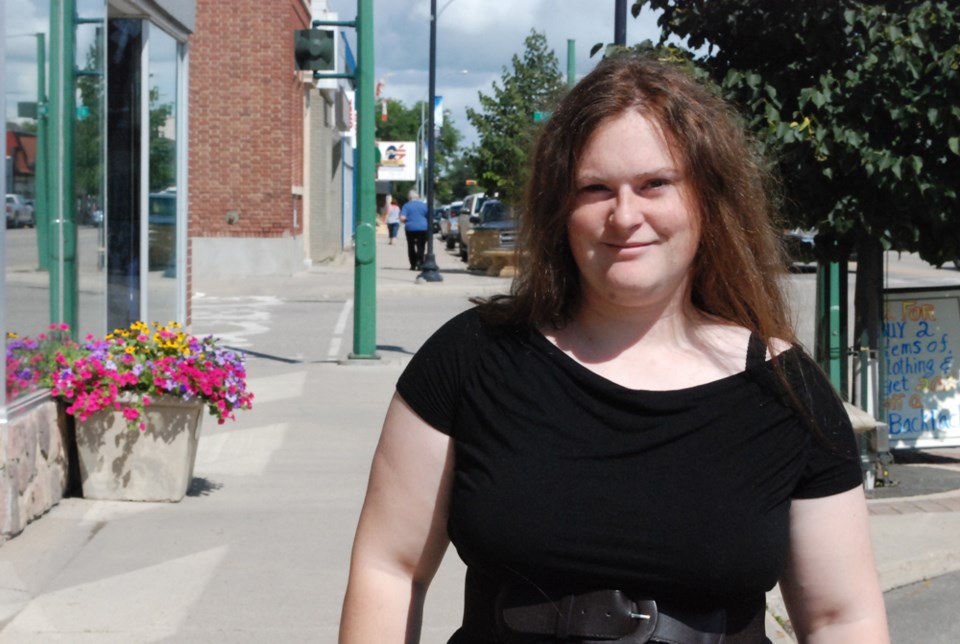A year ago on Aug. 17, I started my job here at the Humboldt Journal and East Central Trader.
I want to take this time to reflect on what I have learned since this is the first step in hopefully a long(ish) journalism career.
It started on my first day in journalism school when I was told I was just as much of a journalist as the teacher in front of me who has been one for 25 years.
The difference being I had less experience and no steady job but from that day we became journalists.
It has been an interesting year working with a newspaper.
But what I have realized is that people do not fully understand what we do.
Going into schools this past year, I have been able to discuss my work.
The first thing I ask students is what they think we do.
From this question rises many different responses, from interviewing people to writing articles to producing the paper to taking pictures.
I tell them that the most important thing we do is tell stories.
Before anyone can jump on that statement, I do not mean stories as fabrications or fiction.
We tell true stories.
We tell the story of the new bylaws that come from the city council meeting last month.
We tell the story of that local sports team that took that hard fought gold medal.
We tell the story of landfills, lagoons, and flooded lakes.
However, depending on who you ask, journalists are not the most trusted professionals in the country.
A survey from Ipsos Reid in 2015 said that 18 per cent of people rated journalists and 17 per cent rated television and radio personalities as extremely trustworthy.
Shout out to firefighters on being number 1 with 77 per cent.
What about the other 82-83 per cent of respondents?
Between 2002 and 2012, trust in journalists dropped from 53 per cent to 31 per cent.
Trust in journalists themselves are falling, yet 54 per cent of people trust media outlets according to the CanTrust Index, the same amount of trust as non-profit organizations.
The same study reveals that broadcasting is at the peak of industry trust while social media platform firms and energy/pipeline industries are not trusted at all.
So now that I am in the thick of it, my question is why?
As journalists, we are supposed to give unbiased reports on events and news.
But we are still only human with our own personal biases and ideals.
When it comes to news media outlets, they are always going to be painted with wide brushes brilliant and blatant colours of tory blue or liberal red or socialist orange.
One news organization is going to be more trustworthy than the next depending on how they align with each individual person’s opinions and points of view, whether they hold the truth or not.
There is a difference between CBC versus Sun Media versus Postmedia (Star Phoneix, Leader Post, etc) and even those differences can be looked at differently depending on who you talk to.
Watching and reading the news, it is not a matter of right and wrong anymore.
The victors write the history books and the same could be said for news organizations as well.
So how do we navigate this scary world of reporting?
My advice, read everyone. Get everyone’s views.
As children, the parents word was law. The parents opinions and viewpoints were also law.
What children see and hear will effect their own viewpoints as they strike out on their own.
As adults, it is no longer that simple.
For me, when I left home it was no longer a matter of what my parents thought.
We meet people, we hear new stories, we learn to look at things differently, we question what we were taught.
Especially when it comes to media, this is imperative.
Someone asked me the other day whether it was okay if they disagreed with what I wrote.
My response, “of course it is okay.”
That is what our letter to the editor section is for.
That is why our phone number is published in the paper.
That is why we put our pictures in the paper.
Not everyone in the world will agree, but everyone has, or should, have a level of rational thought that makes them able to have a mature discussion on things.
I became a journalist to start conversations about issues that I care about.
I invite everyone to have that conversation with me. And I invite everyone to have that conversation with others as long as it can be a mature conversation.
And on that matter, I want to hear about it.




